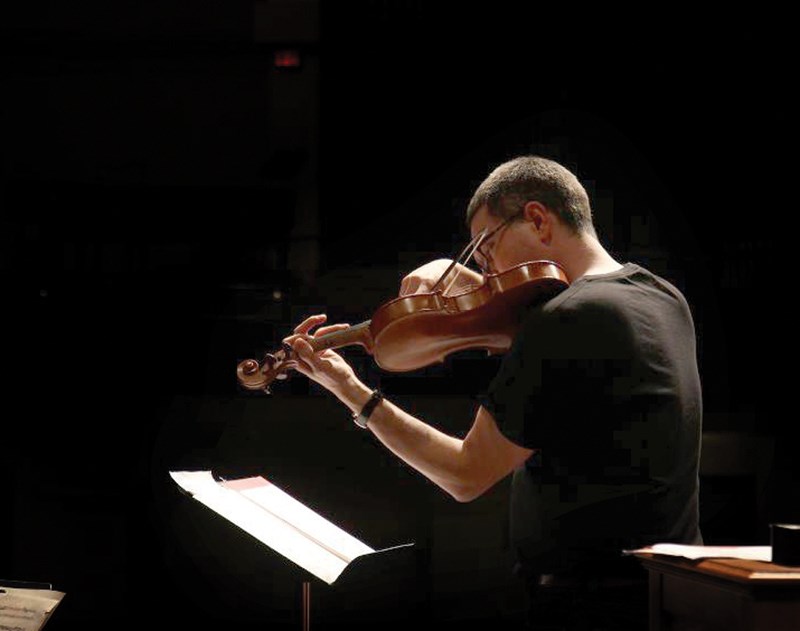Mass in B Minor by J. S. Bach, Friday Aug. 5, 7:30 p.m. at UBC’s Chan Centre for the Performing Arts. Part of the Vancouver Bach Festival, which runs until Aug. 12, presented by Early Music Vancouver. Tickets and info: earlymusic.bc.ca.
For a pious child, it must have seemed like God was in the machine.
The pipe organ seemed to stretch toward the roof of the church like a sinner beseeching his deity for one last reprieve.
Asked about his introduction to music as a child in Munich, Germany, conductor Alex Weimann laughs, first saying he can hardly remember.
But amid the blur of childhood there are always a few mental images that never fray, pictures where the lines are always sharp and the colours crisp.
For Weimann, that image was the pipe organ.
“With many keyboards and all these pistons and knobs, they look like a flight deck,” he marvels.
The machinery fascinated him but it was the music that compelled him.
He loved jazz, but there was a deep allure to the early music that seemed to call from across the centuries; the baroque sonatas, the medieval cantatas, the worshipful hymns.
At age 10, he’d made his decision.
“I really knew I needed to be a musician,” he says.
If there was a single composer who set him on his path, it was Johann Sebastian Bach.
During his life, Bach was a celebrated musician but somewhat overlooked as a composer. What may be his masterpiece, the Mass in B Minor, wasn’t performed in its entirety for more than a century after Bach’s death. At least one 18th century German music critic, the composer Johann Adolph Scheibe, blasted Bach for his tendency towards Italian complexity, calling his musical style turgid and confused.
Even in an era of musical genius, Bach may have been too smart for the room.
“For musicians, (Bach’s music is) very interesting material because it’s so amazingly clever,” Weimann says.
Even before a note is played, Bach’s music achieves a sort of mathematical perfection on the page, according to Weimann. It’s something he calls “eye music.”
“It’s something that almost can’t be grasped by listening to it, only by studying it,” he says. “He combines that with the most beautiful sounds, and almost a naïve joy in making music.”
When Bach writes an aria about the glory of God, he belies expectations by foregoing big chords and bombast for an intimate, gentle sound played with flute and strings.
By failing to satisfy expectations, Bach has a way of exposing a naïve understanding of the infinite, according to Weimann.
“This is a mature soul writing this music, somebody at the end of his life,” he says. “It works through the centuries.”
The music demands a multitude of different approaches, according to Weimann, who says musicians need to play Bach intellectually, spiritually, philosophically and with “sheer musicianship.”
In order to put himself in the mind of the composer, Weimann spent the pre-Internet days scouring microfiche in the hopes of learning more about Leipzig’s greatest musician.
Infusing that knowledge into a single performance can be a challenge, particularly when working with musicians who have literally played the piece several hundred times.
But the music is so complex and so interesting, Weimann likens working with musicians to an expedition of discovery more than a recitation.
“We still discover something new every time,” he says. “I guess a lifetime is not enough to understand the genius that is behind that music.”
In the end, the music isn’t technical, it’s emotional. The performance is intended to convey the deeper meaning of the music to the audience.
“Regardless of whether we are believers or not … there is in religion the attempt to catch some sort of truth about life,” he says. “If you look at it from far enough, then it doesn’t really matter so much what religion the piece originates (from). … One does not need to believe to understand.”



